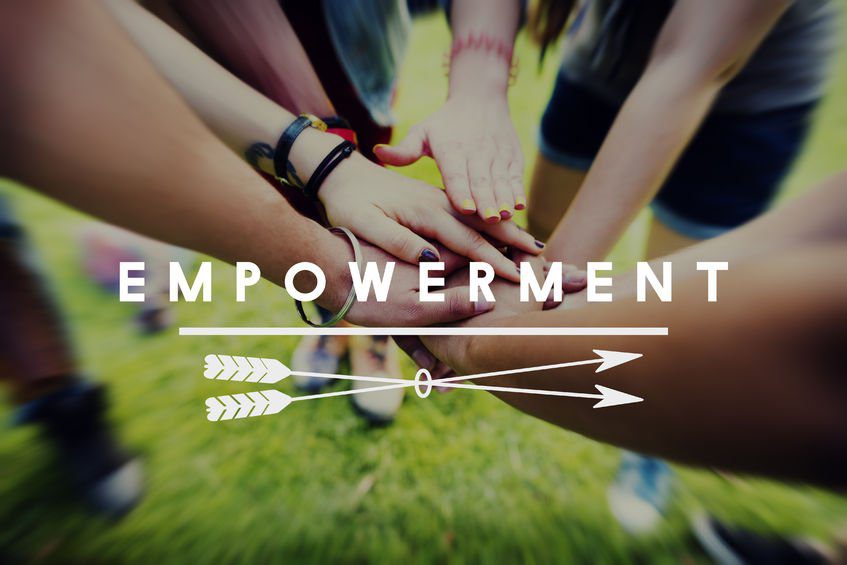
When We Hold Onto The Past, We Lose The Capacity To Grow And Change Our Lives. Learn How To Develop The Skills To Let Go Of Your Narrative And Learn To Live Life With Purpose.
I have some bad news: Everything in our world and everything about you is going to change and someday, come to an end. However, I also have some good news: Everything in our world and everything about you is going to change and someday, come to an end.
What do I mean? Material success is temporary and we have to continuously work hard to flourish and maintain a high level of health, wealth, and our overall wellbeing. All of our problems are temporary, and through hard work and determination, we can overcome any obstacle and face any challenge set in front of us. With continuous effort, hard work, and the desire to grow, we can make lasting changes and create our dream life.
If transformation is conceivable, and everything is impermanent, why do we then continue to struggle with the same problems day in and day out without any noticeable changes?
After much deliberation, I came to realize that change is hard. It is not due to a persons’ desire or social support, but rather due to the truth that the average person often uses their past experiences to judge themselves now. As a result, because he or she has struggled yesterday, last week, last year, and for the last decade, history tells us that we will struggle tomorrow, next week, next year, and for the next 10 years.
This is not accurate. We are not our past. Our past is a narrative of who we were, not who we are today and who we will be tomorrow. Letting go of the past is healthy and it is fundamental if you plan to grow and evolve as a person.
The consequences of being dragged down by your past are far-reaching. These consequences can negatively impact your self-view, your relationships, and your dreams. In addition, it can create daily feelings of sadness and frustration. And all of this is unnecessary.
Letting go of the past is arduous. Letting go of negative people, bad ideas, false beliefs, and unhealthy relationships is the only way to change our narrative and create the life we desire. Every day, each individual moment presents an opportunity to create a new life for ourselves, to remove negative feelings from the past, open ourselves up to the possibility of the moment, and take action to create an incredible future.
6 Ways To Let Go of The Past
- Make the decision to let it go.
- Express your pain — and your responsibility.
- Stop being the victim and blaming others.
- Focus on the present — the here and now — and joy.
- Forgive and forget.
- Do not wait one more minute for an apology.
Although we can intellectually understand that we are not our past narrative, knowing this truth and letting go of the past are two very different situations. Holding onto the past is always damaging in some way. Even holding onto positive events from the past can create limitations in our lives when setting boundaries for the future we want to live. More often than not, we hold onto the past because of our need for certainty
Certainty is a fundamental human need. We all have a need to feel certain in life, so we can avoid pain and discover comfort. Letting go of the past is frightening because it forces us to step into the unknown and create a different life in the future than the one we live today.
Change is hard and it is difficult to be vulnerable. It can be overwhelmingly uncomfortable to have that sense of uncertainty about what lies ahead. To counter this feeling, we hang on to the past, because even if it is steeped in pain, it is a pain we are familiar with and are certain about.
We all need to let go of the past, both positive and negative pasts, to fully enjoy the next stage of our lives. Learning to let go of the things that are not serving you positively will free up energy and resources so that you can begin to reap the benefits of a grateful, joyful life.
Five Ways To Let Go of The Past And Learn To Live Life on Purpose
- Take The Time To Understand The Past: Take time to reflect on your own history as a third party looking in without judgment; simply observe. Understand that you are not your past. Understand that the situations, patterns, and people in your life created your experiences. However, they did not create you. Knowing and understanding your past and some of your patterns will help you to recognize why you hold on and repeat self-destructive behaviors. Understanding creates awareness; awareness helps you break the cycle.
- Accept Your Past And Live In The Present: Accept your history and the people that have been a part of your history; accept your circumstances and remember that none of these define you. Acceptance is the first step to letting go and setting yourself free. Learn from the monk in the story: carrying bitterness, anger, or animosity burdens no one, but you.
- Transform Your Narrative: Simply put, we are our story. Not so much the story of the events in our lives, but the story we tell ourselves about the role we played in the events—hero or victim, beloved or unworthy, competent or careless. One powerful strategy for easing the pain of the past is to rewrite key aspects of the story from a more balanced, empathetic perspective. A healthy rewrite makes you less victimized, less devastated, and less lost than the one you told yourself at the time of the original injury. It reduces the feelings of deep rage, loss, and fear that have been holding you back.
- Believe In Yourself: Believe in your purpose. Believe that the universe is unfolding as it should and that you have a divine roll to play. Believe that holding on does nothing but hold you back from that purpose.
- Anchor Yourself In The Future: It is hard to let go of the past in the absence of a positive view of tomorrow. You need to see a vision of the future. An investment in, a distraction through, or an excitement about something ahead will supply the energy and the will to push you beyond the past.
What’s your level of emotional intelligence?
Find out if your emotional intelligence is helping or hindering your growth! .

I am a Board Certified Life Coach, a Board Certified Health Coach, and a teacher of Mindfulness Living who helps people unlock their potential and live life on Purpose
Receive, via email, our Action Guides, EBooks, Worksheets, Checklist, and Life Tips we only share with our communtiy
Don't Wait Any Longer. Start Forging Your Own Path Today!
How to Fight Negative Thoughts and Feelings




